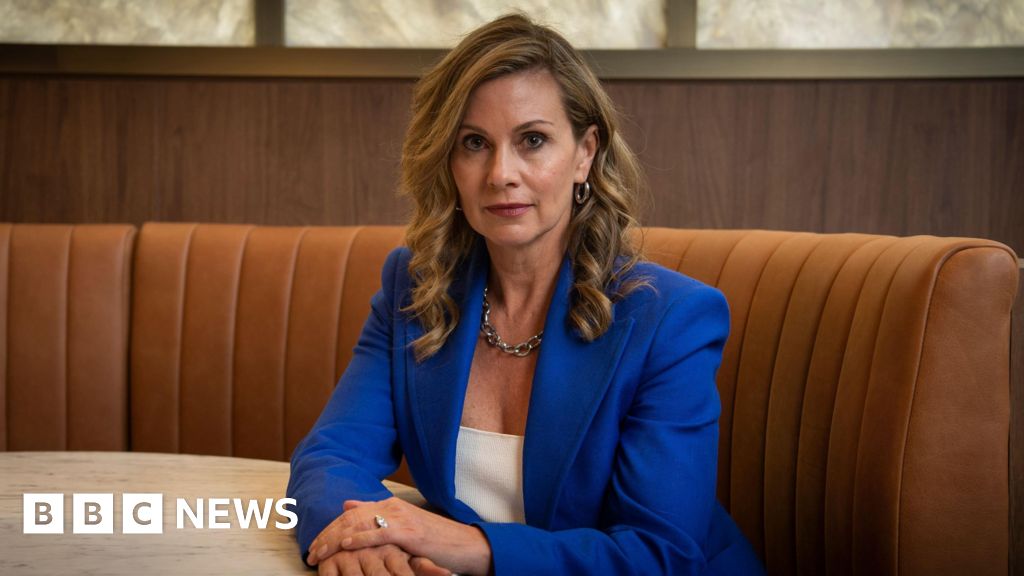Earlier this year, the Australia’s eSafety commissioner took X to court over its refusal to remove videos of a religiously motivated Sydney church stabbing for its global users.
The case was ultimately dropped, but commissioner Julie Inman Grant says she received an “avalanche of online abuse” after Mr Musk called her the “censorship commissar” in a post to his 196 million followers.
[…]
A Columbia University report into technology-facilitated gender-based violence - which used Ms Inman Grant as a case study - found that she had been mentioned in almost 74,000 posts on X ahead of the court proceedings, despite being a relatively unknown figure online beforehand.
According to the analysis, the majority of the messages were either negative, hateful or threatening in some way. Dehumanising slurs and gendered language were also frequently noted, with users calling Ms Inman Grant names such as “left-wing Barbie”, or “captain tampon”.
[…]
Ms Inman Grant said that Mr Musk’s decision to use “disinformation” to suggest that she was “trying to globally censor the internet” had amounted to a “dog whistle from a very powerful tech billionaire who owns his own megaphone”.
She said that the torrent of online vitriol which followed had prompted Australian police to warn her against travelling to the US, and that the names of her children and other family members had been released across the internet.
[…]
The case turned into a test of Australia’s ability to enforce its online rules against social media giants operating in multiple jurisdictions – one which failed after a Federal Court judge found that banning the posts from appearing on X globally would not be “reasonable” as it would likely be “ignored or disparaged by other countries”.
In June, Ms Inman Grant’s office said it would not pursue the case further, and that it would focus on other pending litigation against the platform.
X’s Global Government Affairs team described the outcome as a win for “freedom of speech”.



It’s complex and I don’t have the answers. My comment is merely hilighting the conflict between these 2 ideals… governments shouldn’t whether or not specific content is ok, but companies shouldn’t provide content which is clearly unacceptable.
If xitter didn’t provide that content the government wouldn’t have to intervene.
If the government does intervene it reduces the barrier for them to intervene in future.
Yes they should.
Idk why do people act as if online content is detached from real life. Governments decide what type of content/things are ok irl all the time, literally laws are deciding what is ok for you to do and show in real life all the time, everywhere, in all aspects of life. Why do you think online content is untouchable?
In most countries going out and showing your penis in public will land you in jail, why is the government deciding this is inappropriate “content” to be in public? It is just an example out of… thousands.
What do you think would happen if you set up a huge screen on a public square irl and started playing real murder videos that happened recently to people from your own country? Do you think people would see your huge screen showing actual muders and not call the cops on you? Do you think this behaviour would not destroy your life, maybe land you in jail or get you a huge fine, get you lawuits from the victims’ families (who were real people on your videos) that you would 100% lose?
If you think governments shouldn’t decide what type of content is ok to be shared publicly on social media, I invite you to download a collection of gore videos and set up a huge screen out on the streets and see how long you manage to be showing this in public before it lands you in trouble.
You wouldn’t do it and I bet you know damn right that you getting in trouble for this is correct. Why is public social media different? Online = ethereal world where rules don’t matter?
Come on dude, online content is not detached from real life.
Remember we are talking about content shared publicly for anyone, even unintentionally, to see. Not private messages and private groups that people join willingly.
Sure mate.
You’re suggesting that showing videos in a town square is the same as posting in Twitter? They’re not the same, obviously.
Explain how they are different.
One is online.
If that’s the extent of their differences, then they aren’t very different…
I don’t see how this is so difficult. Given the choice between a narcissistic billionaire or an independent, accountable government commission that’s bound by the rule of law, I’ll choose the latter every time.